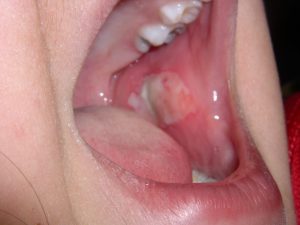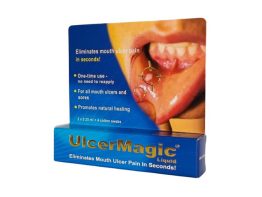Mouth ulcers, also known as canker sores, are small, painful lesions that form on the soft tissues inside the mouth. These ulcers can be quite uncomfortable, making eating, drinking, or talking difficult. While mouth ulcers can have various causes, one of the most common and often overlooked reasons is physical injury to the mouth. These injuries can lead to ulcers, whether caused by an accidental bite, poorly fitting dental appliances, or even overzealous brushing.
If you’ve ever had a mouth ulcer, you know how painful it can be. Understanding how injuries cause these sores and how to prevent and treat them can make a big difference in managing and reducing discomfort.
The Link Between Injury and Mouth Ulcers
The mucosa, the delicate tissue lining the inside of the mouth, is very sensitive. Even minor trauma to this tissue can cause an open sore, leading to a mouth ulcer. Unlike other areas of the body where cuts and scrapes may heal quickly, the constant exposure of the mouth to food, drinks, and bacteria can slow down the healing process, making ulcers more painful and longer-lasting.
Let’s examine the different types of injuries that can lead to mouth ulcers and how they cause these painful sores.
1. Accidental Bites: A Common Cause of Mouth Ulcers
One of the most frequent ways injuries occur in the mouth is through accidental bites. This can happen when you eat quickly, talk while chewing, or even sleep. The inside of the cheeks or tongue can easily get caught between the teeth, causing a painful injury.
When you bite your cheek or tongue, the wound created is more vulnerable to bacteria in the mouth, exacerbating the problem. The body responds by initiating an inflammatory response, leading to swelling and the formation of a mouth ulcer.
These accidental bites may seem minor at first, but they can become increasingly painful as the ulcer forms and is exposed to food, drinks, and even mouth movement when talking.
What You Can Do:
- Be mindful when eating: Slow down and avoid talking while chewing to minimize the chances of accidental bites.
- Rinse with salt water: After an accidental bite, rinse your mouth with a saltwater solution to help clean the wound and reduce the risk of infection.
2. Hard or Sharp Foods: A Sneaky Culprit
Certain foods can be surprisingly harmful to the sensitive tissue in the mouth. Foods with sharp edges, like crisps (potato chips), crusty bread, or hard candies, can scrape or puncture the delicate lining of the mouth, leading to ulcers.
Some hard foods like nuts or raw vegetables may also cause small tears in the mouth’s soft tissue. Though these minor injuries may not seem significant at first, they can develop into full-blown ulcers as the area becomes irritated by further contact with food or drinks.
What You Can Do:
- Opt for softer foods: If you’re prone to mouth ulcers or have an existing ulcer, choose softer foods that are less likely to injure the tissue in your mouth.
- Chew food thoroughly: Chew your food thoroughly to break it down before swallowing. This can help prevent hard or sharp edges from injuring the mouth.
- Avoid hot or spicy foods: Hot or spicy foods can aggravate an existing injury and delay healing, so they should be avoided when you have a mouth ulcer.
3. Dental Appliances: Braces and Dentures Can Cause Irritation
People who wear dental appliances, such as braces, dentures, or retainers, are at higher risk of developing mouth ulcers due to friction or pressure on the soft tissues in the mouth. Poorly fitting dentures can rub against the gums or the inside of the cheeks, creating sores over time. Similarly, the brackets and wires of braces can irritate the lining of the mouth, especially during the initial adjustment period.
These repeated irritations lead to small wounds that, if left untreated, can turn into painful mouth ulcers. The constant mouth movement when eating, speaking, or even yawning can further exacerbate the problem.
What You Can Do:
- Regular dental check-ups: Visit your dentist or orthodontist regularly to ensure your dental appliances are properly fitted. They can adjust your braces or dentures to ensure they don’t rub against your mouth’s soft tissues.
- Use dental wax: If you have braces, dental wax can be applied to the brackets or wires to reduce friction and prevent irritation.
- Wear mouth guards: For those who wear dentures, mouth guards may provide an extra layer of protection between the appliance and the soft tissue of the mouth, reducing irritation.
4. Vigorous Brushing and Harsh Oral Care Products
Good oral hygiene is important, but being too aggressive can harm the sensitive tissue in your mouth. Brushing too hard or using a toothbrush with stiff bristles can cause small cuts or abrasions in the gums and mouth lining. This damage can eventually lead to mouth ulcers, especially with harsh toothpaste or mouthwash.
Sodium lauryl sulfate (SLS), a common ingredient in many commercial toothpastes, has been shown to irritate the lining of the mouth in some individuals, leading to the development of ulcers. If you’re prone to mouth ulcers, switching to an SLS-free toothpaste may help reduce outbreaks.
What You Can Do:
- Use a soft-bristled toothbrush: Switching to a soft-bristled toothbrush can prevent damage to the gums and soft tissue in the mouth. Brushing gently in circular motions is enough to clean your teeth without harming the surrounding tissues.
- Choose gentle oral care products: If you’re prone to mouth ulcers, consider switching to toothpaste and mouthwash designed for sensitive mouths. Look for products that are free from harsh chemicals like SLS.
5. Dental Procedures
Dental treatments, while necessary for oral health, can sometimes cause trauma to the mouth. Cleanings, fillings, and extractions may involve sharp tools or prolonged pressure, which can result in small injuries to the lining of the mouth. These minor wounds may become ulcers if they become irritated by bacteria or food particles during the healing process.
While the risk of mouth ulcers following dental work is relatively low, they do occur and can cause considerable discomfort.
What You Can Do:
- Rinse with antibacterial mouthwash: After a dental procedure, using an antibacterial mouthwash can help reduce the risk of infection and promote healing in injured areas.
- Eat soft foods: Stick to soft foods for a few days following dental work to avoid irritating small injuries.
How to Treat Mouth Ulcers from Injuries
If you develop a mouth ulcer as a result of injury, there are several treatment options available to ease the discomfort and promote healing:
- Over-the-counter gels and creams provide a protective barrier over the ulcer, reducing pain and irritation.
- UlcerMagic: For fast and effective relief, UlcerMagic is an ideal solution. It forms a protective layer over the ulcer, significantly reducing pain immediately while promoting quicker healing. Unlike standard gels, UlcerMagic targets the ulcer directly and provides longer-lasting relief.
- Saltwater rinses: Rinsing your mouth with salt water can help clean the ulcer and reduce inflammation.
- Avoid irritants: Avoid spicy, acidic, or salty foods that may aggravate the ulcer.
- Use pain relievers: Over-the-counter pain relievers, such as ibuprofen or acetaminophen, can help manage the pain while the ulcer heals.
Conclusion
Injury to the mouth is a common cause of mouth ulcers, but the good news is that most ulcers heal on their own within a week or two. You can reduce the risk of developing painful mouth ulcers by taking steps to prevent injury — such as being mindful when eating, using gentle oral care products, and ensuring proper dental appliance fit. If an ulcer does occur, simple treatments like salt water rinses, over-the-counter gels, and UlcerMagic can help speed up the healing process and provide relief.






